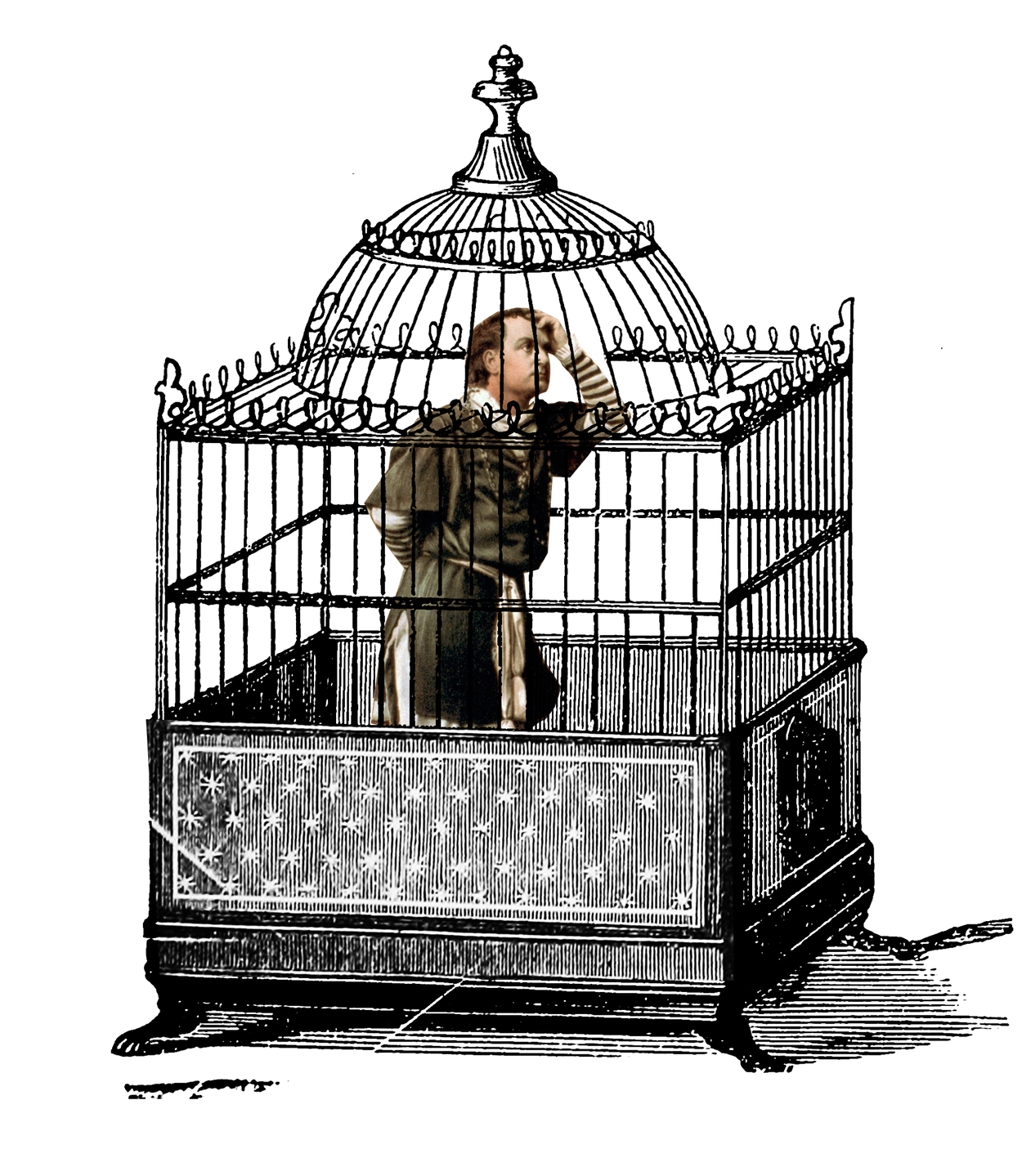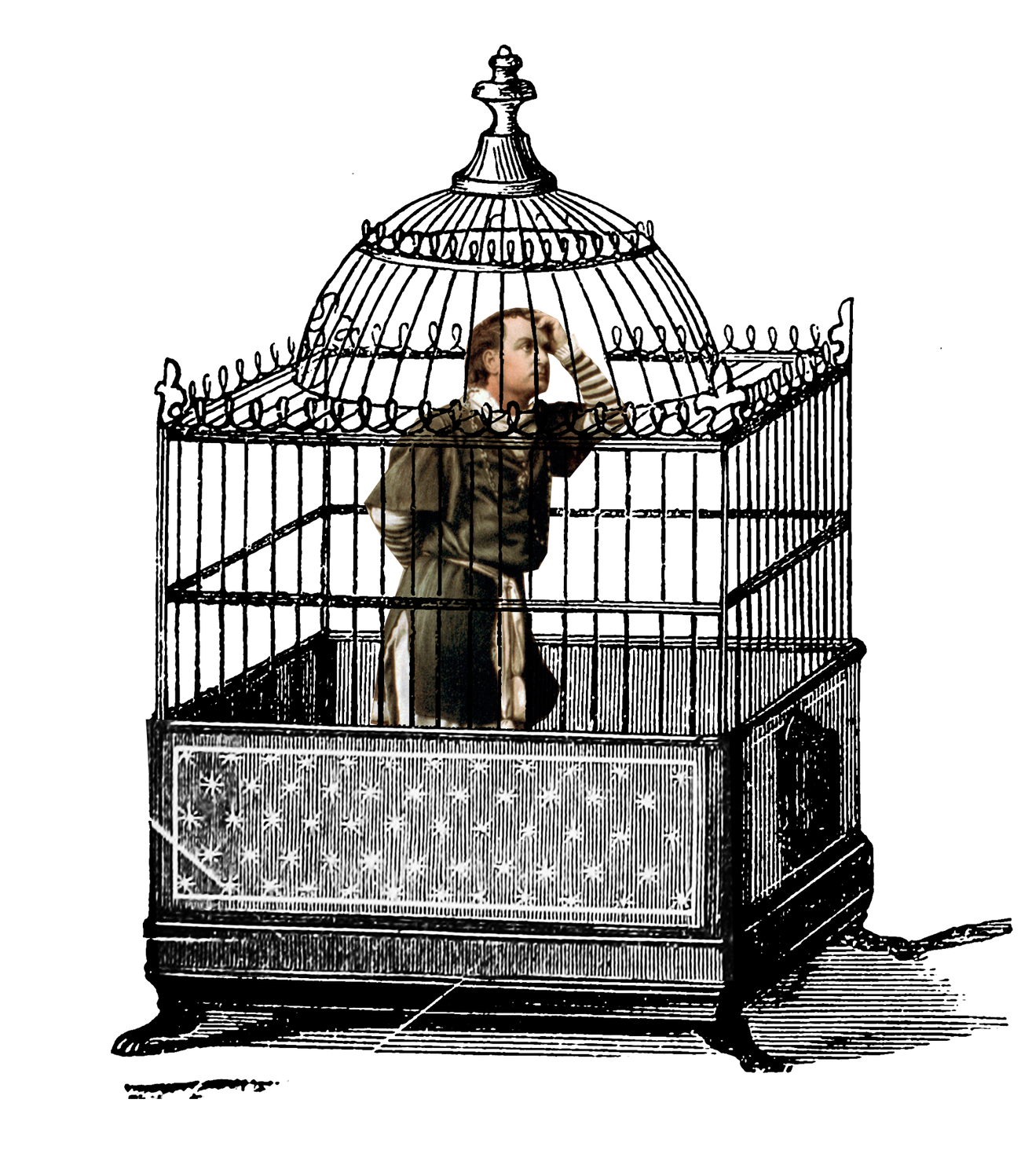Jews in Lockdown
Things are looking up




I began a paper many years ago addressing T.S. Eliot’s misread of Hamlet—you might remember he accused the play of lacking an “objective correlative” that could dramatically body forth Hamlet’s disorder, as though being upset about your uncle killing your father, your mother marrying your uncle, and your father’s ghost walking the battlements, needs any further external representation to explain it. Central to my argument was what I called the “T.S. Eliot blind spot when it came to Jews,” Hamlet being, in my view, a Jewish play manqué, and Hamlet himself almost as Jewish a character as Shylock: Shylock, if you like, without the gaberdine but with soliloquies. It was the way Hamlet ran rings around his false friends and tormentors that reminded me of Shylock, the thin skin, the sharp retorts, the jokes that could be taken for solemn affirmations and solemn affirmations that could be taken for jokes. What further made him Jewish, I went on, was his submission to incarceration, whether actual or imagined, in the form of Denmark with its many confines, wards and dungeons, the bad dreams, the inky cloak, the tight knot of prevarication into which he ties himself, the compulsive introspection, the adopted madness.
My paper foundered, not on Hamlet, T.S. Eliot or even the question of what Shakespeare knew about Jews, but the nature of Jewishry itself. Did I know enough about Jews? Could my premise that submission to incarceration was a Jewish trait bear scrutiny? Was it based on anything more than personal experience? I happened to be a self-incarcerator myself, but did that license me to extrapolate a general truth about Jews?
Quite simply, I hadn’t read a sufficient number of books by Jewish authors. I was adumbrating my theory well before the publication, for example, of Philip Roth’s Kafkaesque novella The Breast in 1972. In an interview about The Breast with the novelist Alan Lelchuk, Roth compared its hero, David Kepesh, to his previous protagonists Lucy Nelson and Portnoy, who “at the same time that they have yearnings for a more normal and settled existence, are hell-bent on maintaining their isolation with all the rage and wildness in their arsenals.”
I could have done with the idea of being “hell-bent on maintaining isolation,” when I was roughing up T.S. Eliot. It was precisely the “rage and wildness” that Roth describes—its self-charged, self-imposed, comic inordinacy—that Eliot would have had no ear for.
I’m not a regular reader of Therapy Today, the almost-monthly journal of the British Association for Counselling and Psychotherapy, but these are not regular times, and when reliable information is in short supply, you take it wherever you find it. What caught my eye was a piece about the way members of the therapy profession and their clients are coping with COVID-19—in particular the thoughts of a counselor called Susanne Barthelmes who notes an “uplift in mood among clients she has been working with for depression.” She understands the pandemic as having “normalized the depressive experience,” reducing guilt about withdrawal, because everyone is being asked to withdraw, and in this way acting as “a motivator to re-engage with life.” To her surprise, two “seriously depressed clients” have reported feeling “significantly better … and were no longer experiencing suicidal ideation.”
Two good friends of mine, both self-identifying as supraclassic Jewish depressive hypochondriac agoraphobics, emailed me with gusto in the last few weeks to say how well, how relaxed, how spacious, they are feeling.
Short of hunting Susanne Barthelmes down and demanding she divulge the ethnicity of these “seriously depressed” clients—information which she would surely deny me—I have no way of knowing whether they are Jewish or not. And it shouldn’t matter. Gentiles, too, are entitled to feel better in circumstances in which you’d expect them to feel worse. If there is a Jewish dimension to this psychological phenomenon it can only be fractional. But fractions count when we are measuring cheer or depression. Had Hamlet been still more Jewish it’s conceivable he would have complained less often of losing his mirth. For there would appear to be a dimension of wild mirth in Jewish acceptance of isolation.
I register it as significant, anyway, that two good friends of mine, both self-identifying as supraclassic Jewish depressive hypochondriac agoraphobics, should have emailed me with gusto in the last few weeks to say how well, how relaxed, how spacious, they are feeling, while a third rang to tell me that he and his wife (who normally vie to be the more morose) have never felt better in their whole lives. Of course, you can’t always believe what supraclassic neurosis-collecting Jews say, since it’s endemic to all their conditions to lie about them; but you wouldn’t expect the lie to take the form of playing their suffering down. And then there’s what one feels oneself. I wouldn’t say I’ve never felt better, but I’ve spent much of my life feeling far worse.
At the simplest level, being compelled to ritualize one’s behavior takes the burden off imposing ritual on oneself and normalizes those aberrancies usually filed under “obsessive compulsive.” Suddenly there is good reason to double check the locks: even more than you don’t want a burglar breaking into your house, you don’t want a virus carrier. And that manic fastidiousness around the selecting and cleaning of food, of which koshering is just one example, is all at once no more than everyone is doing. As for the ritual cleaning of one’s person, while I’ve never been a great rinser of my hands in holy places, never wanted to know in any detail why the ultra-Orthodox wash their hands immediately on waking, and shrink in horror from the very idea of the mikvah—that bath for removing all traces of woman from women—I admit to being a fanatic all-day, all-purpose hand-washer and welcome further pretext for it. Which is not to say I am impressed by our government’s suggestion that we wash to two verses of “Happy Birthday, Mr. President” or whoever. Put your hands under scalding water and leave them there for as long as it takes you to sing Handel’s Messiah is my advice. And if you must throw in a happy birthday, extend the list and sing it to—Nicholas Nickleby, Barnaby Rudge, Oliver Twist, Martin Chuzzlewit, David Copperfield, Little Dorrit, and Edwin Drood—not Mr. President.
But that’s just to scratch the surface. We must enter a deeper stratum of mental derangement to confront the “suicidal ideation” Susanne Barthelmes speaks of.
It’s hard not to think again of Hamlet flirting with swapping the prison of consciousness for the prison of the graveyard. Things have to get bloody in Elsinore before Hamlet’s equilibrium starts to return, but in the absence of a few revenge murders, what enables Susanne Barthelmes’ lockdowned clients to emerge from their serious depression into the uplands of reengagement with life? For Jews, anyway, if our literature is a guide, confinement would seem to confirm the worst of our anxieties, remove our terrors from the realm of speculation and, in so doing, if not exactly assuage them then at least locate them in the realm of the unexceptional. “Sin is the root of all illness,” Kafka wrote, as ever managing not to mention Jews while making it impossible for us to think of anyone else. If illness originates in sin then it manifests itself in guilt. By which reasoning, hypochondria is orgiastic self-blame. But if everyone else is filled with fear and trembling, and if the bad-faced stranger hammering at our door is hammering at everyone else’s too, the case we make against ourselves is immeasurably weakened. A sin shared is a sin diluted. In relief whereat it is hardly surprising if distracted Jews start feeling better.
In The Plague Albert Camus describes “the vast despondency” that replaced “the furious revolt” felt originally by those he calls “prisoners of the plague”—“a sort of passive and provisional acquiescence.” He goes on, “Naturally they retained the attitudes of sadness and suffering, but they had ceased to feel their sting.”
What it might be like to submit to so vast a despondency, to feel sadness and suffering gradually lose their sting, will depend on the prisoners’ normal expectations of a happy life. When we read of Jews allowing the ghetto to calm their perturbations and become at last a place of peace and even succor we can only wonder at how great their sense of danger must have been before there was a ghetto to keep troubles out and worries in.
As the King of Lockdown, Kafka has a great deal to say about the consolations of confinement. “A prison he could have come to terms with,” he writes in the phorism usually given the title “He.” “To end as a prisoner, that would be a goal for a life. … [But] The prisoner was actually free; he could take part in everything; nothing outside escaped him; he could even have left the cage, after all, the bars were yards apart; he wasn’t even imprisoned.” The paradox of a prison that isn’t really a prison but which the prisoner accepts as though it is, recurs frequently in Kafka, as in the trial that isn’t really a trial, the castle that isn’t really a castle, and the cage that can hardly be called a cage into which, on the death of the Hunger Artist, a young panther is locked. What sort of cage is this that denies the panther none of the freedoms he cares about? “The panther was all right. The food he liked was brought him without hesitation by the attendants; he seemed not even to miss his freedom; his noble body … seemed to carry freedom about with it …” And from his throat “the joy of life streamed with … ardent passion.”
The panther is not a common figure for the Jew, on whose imagined face fellow Jews cannot help drawing the spectacles of the intellectual and the deep lines of unceasing apprehension. That was how Isaac Babel described himself, adding that it was always autumn in his heart. Such a self-image is, of course, its own confinement, as Babel fully understood, hence his love affair with the Cossacks from whom the joy of life, as he painted them, did indeed stream with ardent passion.
We come full circle to the self-pleasing Jew Alexander Portnoy, hardly a panther or a Cossack, even by Newark, New Jersey, standards, but hell-bent on maintaining his isolation with all the rage and wildness in his arsenal. And it’s Roth I find myself thinking about again as I imagine my Jewish friends shedding depression and neurosis in their lockdowned north London homes. In particular it’s Mickey Sabbath, anathematic hero of Sabbath’s Theater, more Lear than Hamlet, but not a million miles from Josef K—“He hadn’t committed suicide, because he was waiting to be murdered”—finally deciding that, after all, with “no one to kill him except himself,” suicide was the only way out of the hell-hole dungeon he’d made of his existence. But …
Except that Roth doesn’t write the word “But,” he writes the word “And,” as though what follows is a natural consequence not a qualification. “And, he couldn’t do it. He could not fucking die. How could he leave? How could he go? Everything he hated was here.”
Call that the perverse pertinacity of the Jews. But we know the downside: preferring the acrid irony of house arrest to the bracing air of freedom.
Howard Jacobson is a novelist and critic in London. He is the author of, among other titles, J (shortlisted for the 2014 Booker Prize), Shylock Is My Name, Pussy, Live a Little, and The Finkler Question, which won the 2010 Man Booker Prize.